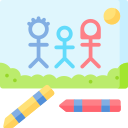
Interactive Learning Workshops for Kids in English
Welcome to an engaging world of education designed especially for children! Our Interactive Learning Workshops for Kids in English combine creativity, active participation, and educational enrichment. These workshops are tailored for young learners to build their language skills, boost confidence, and foster a love for learning—all while having fun. Whether your child is a beginner or looking to polish existing skills, our innovative approach ensures a rewarding and enjoyable experience for every participant. Discover the magic of interactive learning where curiosity leads the way, exploration is encouraged, and every child finds their unique voice in English.
Engaging Storytelling Activities
Dynamic Story Creation
In this block, children become the authors of their own tales. Guided by experienced facilitators, participants learn how to craft compelling narratives using descriptive language, strong characters, and exciting plots. They contribute ideas, build stories together, and take turns narrating. This interactive process not only improves vocabulary and sentence construction but also encourages teamwork and boosts self-expression. Through the act of story creation, kids gain confidence in speaking English and learn to organize their thoughts coherently, setting a strong foundation for future communication and writing tasks.
Dramatic Reading and Role-play
This block introduces children to the world of expressive reading and role-play. Kids pick out parts from short stories or scripts and practice reading aloud with emphasis on intonation, emotion, and clarity. Facilitators guide them on how to embody different characters, encouraging them to use gestures and facial expressions. The role-play exercises develop pronunciation, listening comprehension, and empathy, as children must imagine what their character feels and thinks. This dynamic approach makes language practice fun, memorable, and highly effective for building fluency.
Creative Story Mapping
Story mapping teaches children how to plan and structure their narratives before putting pen to paper. Participants use visual aids and group brainstorming to outline the sequence of events, define character traits, and build suspense within a story. This activity not only makes the process of storytelling more accessible but also helps children develop organizational and analytical skills. By breaking down stories into smaller components, young learners gain a clearer understanding of how stories work and how to replicate them in their own writing and speaking.
Fun Vocabulary Building Games
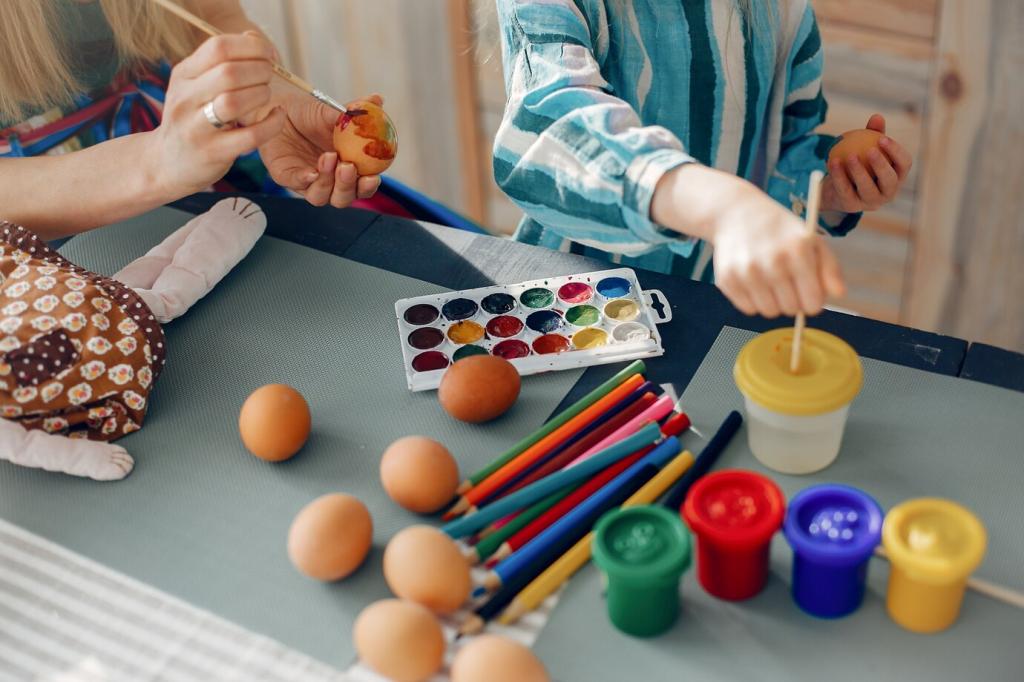
The word association block invites children to connect new vocabulary with familiar concepts, creating strong mental links. Through fast-paced games and collaborative exercises, kids are presented with a word and asked to come up with related terms or synonyms. Facilitators encourage reasoning and creativity, rewarding imaginative connections. As children play, they reinforce the meaning and context of each word, helping them to recall information more easily in day-to-day conversation and tasks. This interactive format keeps engagement high while promoting cognitive development and associative thinking.
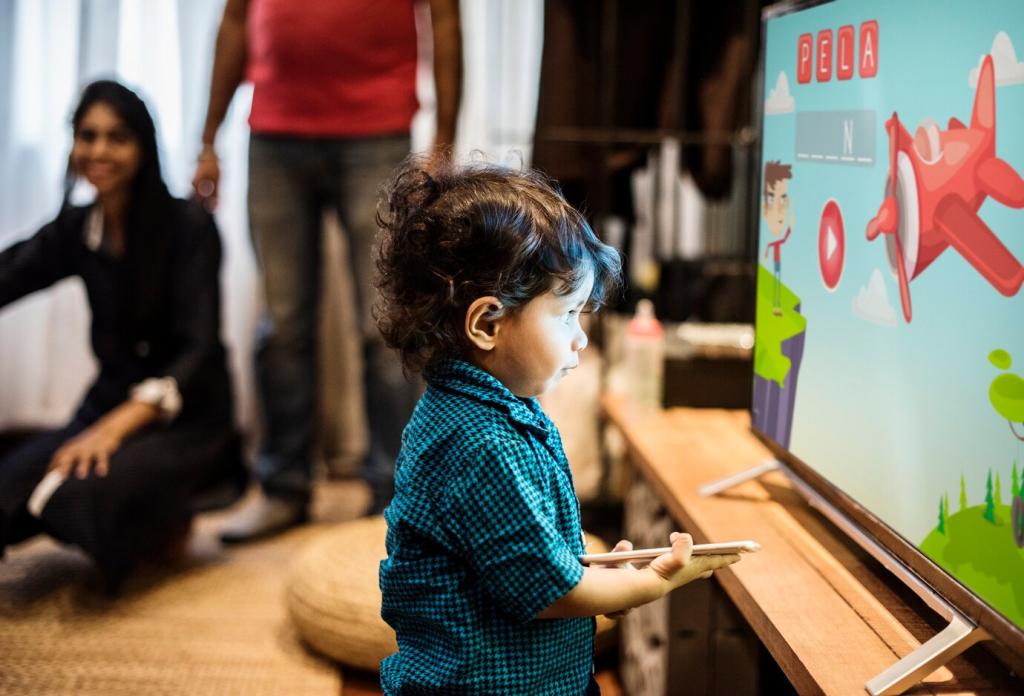
Everyday Dialogues
In this block, children participate in simulated day-to-day conversations such as greeting a friend, ordering food, or asking for help. Facilitators model typical exchanges and encourage children to try out both familiar and new language. Practice is repeatable and adjustable for different skill levels, allowing each child to progress at their own pace. As they engage, children build a repertoire of useful phrases they can use outside of the classroom, enhancing their conversational English and comfort in new situations.
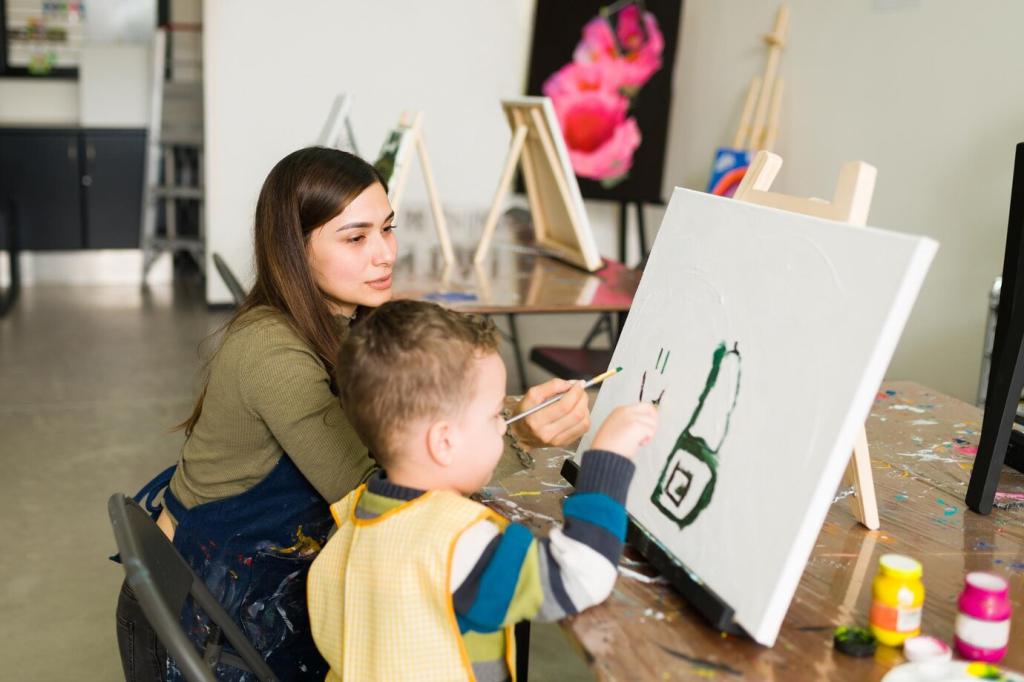
Problem-Solving Role-Plays
This block challenges kids to use English to navigate age-appropriate dilemmas and problem-solving scenarios. Whether negotiating a playground disagreement or planning a group activity, children use English to express opinions, negotiate solutions, and reach compromises. Facilitators guide them through key words and phrases, supporting respectful communication and flexibility. The focus is not only on language accuracy but also on effective communication and empathy, giving children real tools for interaction in English-speaking environments.
Interactive Grammar Adventures
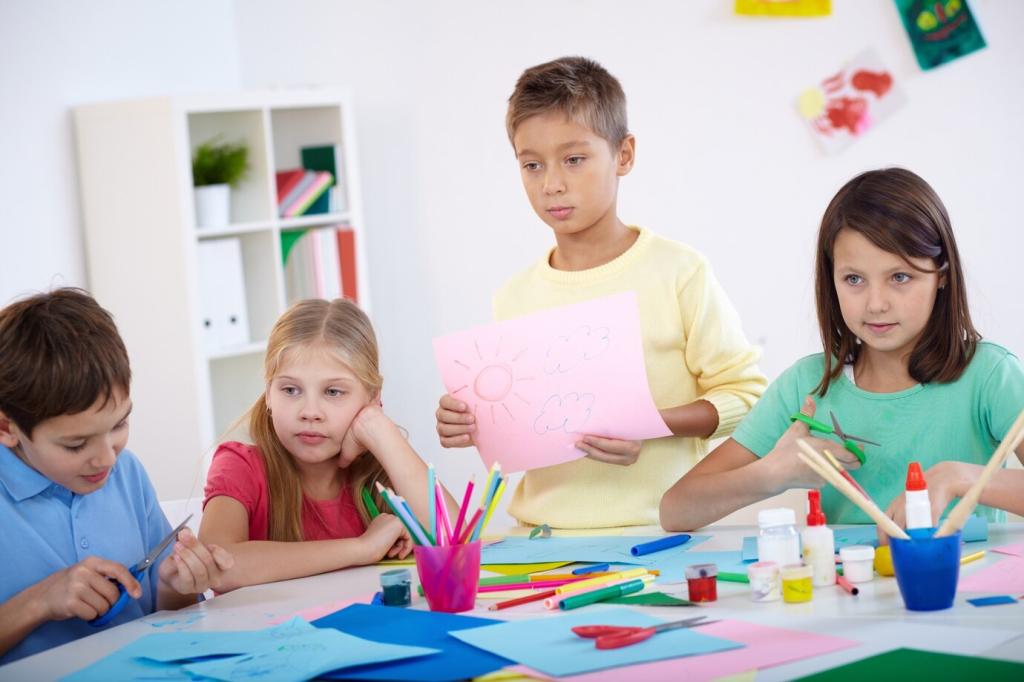
Grammar Treasure Hunts
In this imaginative grammar workshop, children hunt for “treasure” by finding and correcting hidden grammar errors in sentences or stories placed around the room. Each correct answer awards clues, making the process lively and rewarding. By physically moving and engaging with the content, learners reinforce concepts such as tense, subject-verb agreement, and pronoun usage without traditional drills. Facilitators provide hints and explanations, transforming grammar practice into a memorable adventure.
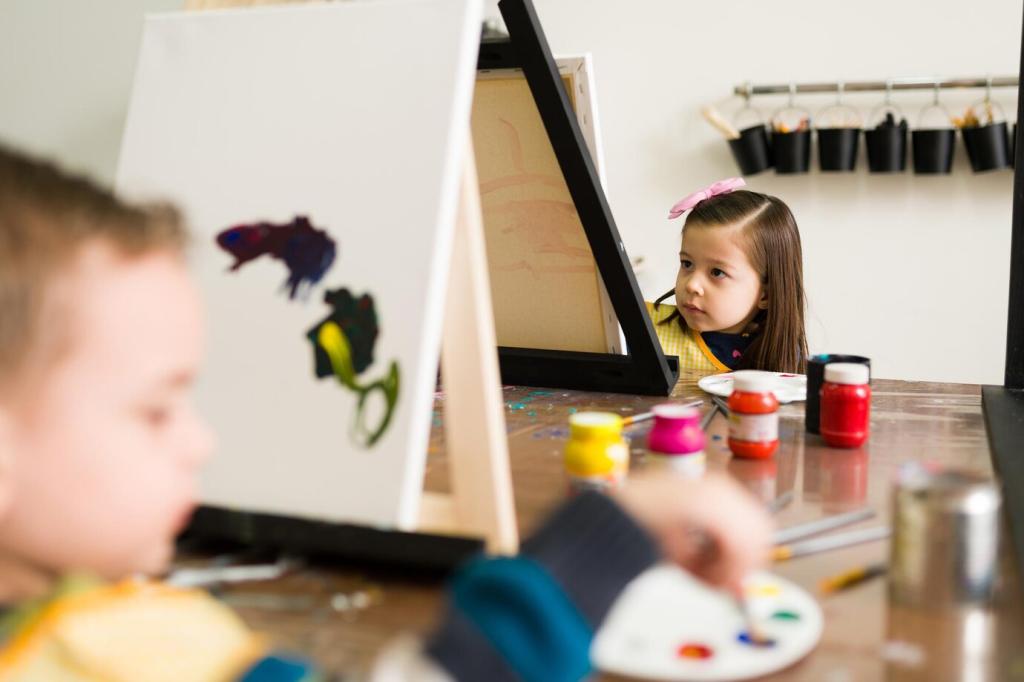
Action-Based Grammar Games
This block integrates physical activities where each action represents a grammatical structure. For example, hopping might represent verbs, or passing a ball could symbolize changing tenses. As the activity unfolds, facilitators challenge children to form sentences or answer questions while in motion. This approach anchors abstract grammar concepts with physical memory, making them easier to recall. Kids enjoy the dynamic pace and teamwork, while facilitators ensure grammar learning remains clear and purposeful.
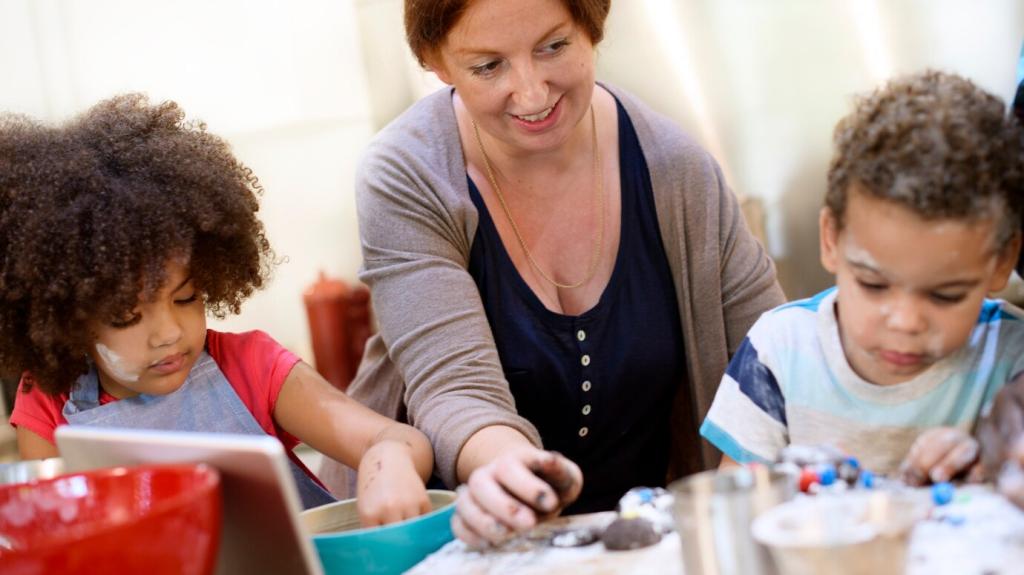
Collaborative Story Grammar Edits
Here, children collectively edit a short story riddled with grammar errors. Working in small groups, they identify mistakes and suggest corrections, debating the rules in a supportive environment. Facilitators guide the discussion with fun examples and encourage peer teaching. This cooperative editing process deepens their understanding of grammar as they see rules applied in context. Children also develop critical thinking and teamwork through active participation and constructive feedback.
Creative Writing Workshops
Children are introduced to a variety of poetic forms, from simple rhymes to free verse. Facilitators help them explore rhythm, imagery, and language play, guiding each participant to write their own poems. These exercises foster self-expression and a love for language, as children discover how to convey feelings and ideas through carefully chosen words and structures. Sharing poetry aloud also helps develop reading fluency and public speaking skills in a friendly, supportive atmosphere.
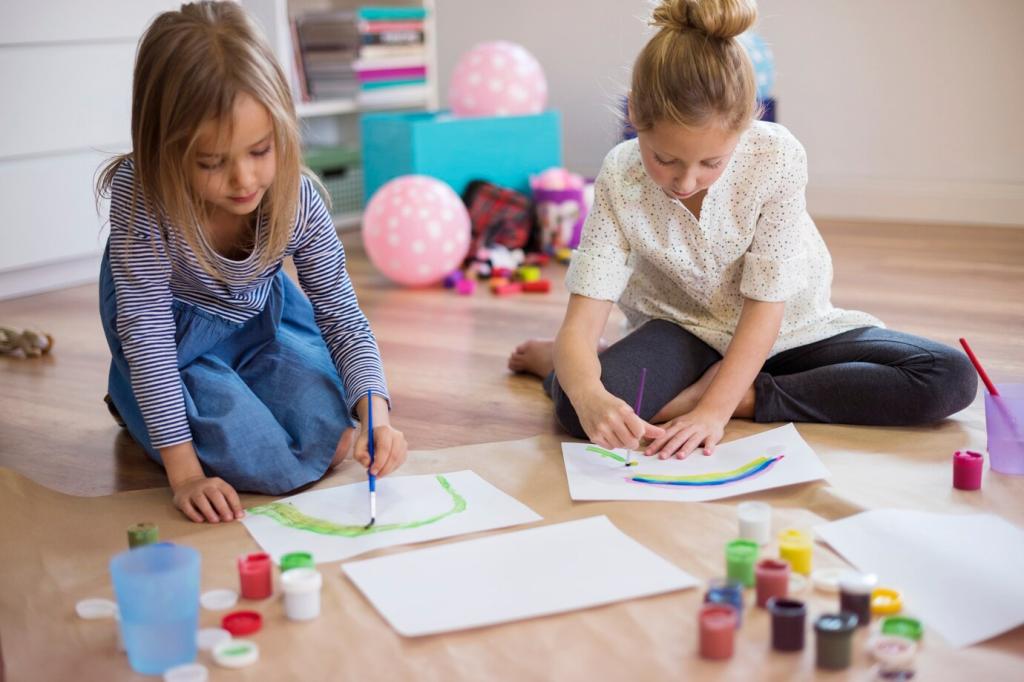
Imaginative Arts and Crafts in English
Kids follow step-by-step English instructions to create art projects such as collages, puppets, or greeting cards. As they work, facilitators introduce relevant vocabulary and encourage children to ask questions or clarify steps using English. The process strengthens listening and comprehension skills, while the tangible outcome provides a sense of achievement. By combining language with craft, children internalize new words and phrases in a meaningful, hands-on way that enhances memory and application.
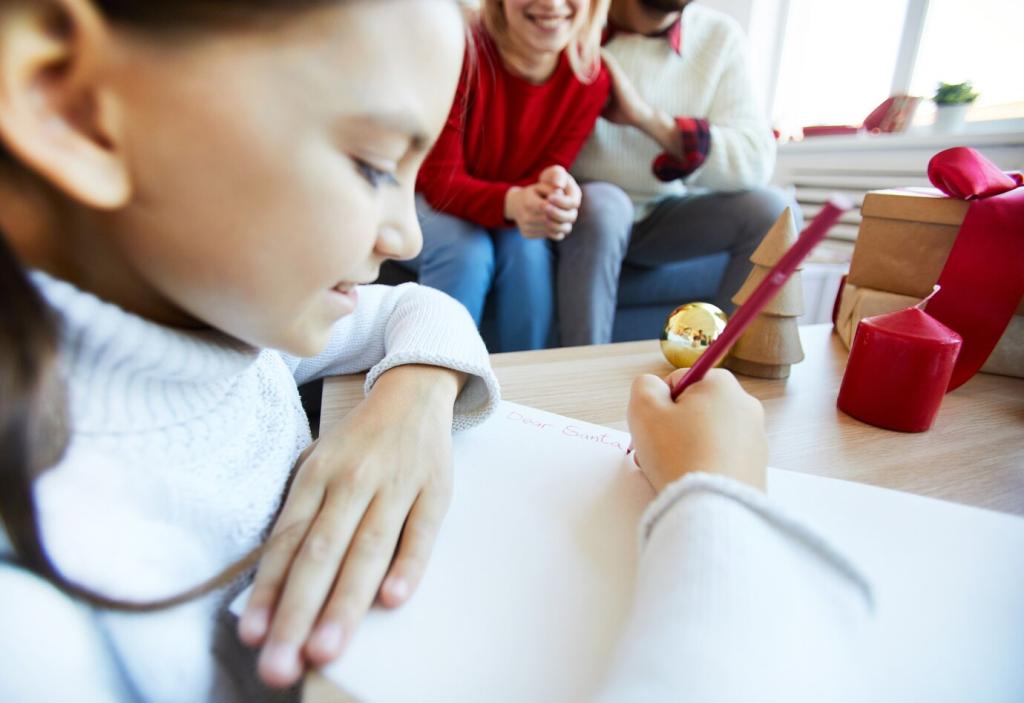
Previous slide
Next slide
STEM Explorations in English
Simple Science Experiments
Children conduct safe, age-appropriate science experiments guided entirely in English. Facilitators introduce key vocabulary, explain concepts, and help children hypothesize and describe their observations. The hands-on approach makes scientific language approachable, enhancing comprehension and memory. As participants discuss their findings with peers, they build both scientific curiosity and communication skills in English.
Building and Engineering Challenges
In these workshops, children use everyday materials to construct towers, bridges, or machines, following English instructions and collaborating with classmates. Facilitators introduce relevant technical vocabulary and phrase structures, ensuring kids understand both the science and its linguistic expression. Building together requires discussion, planning, and feedback, developing critical thinking, teamwork, and practical English skills in parallel.
Math Puzzles and Games
Math is made interactive and accessible through English-based puzzles, riddles, and games. Facilitators present challenges that require participants to follow instructions, reason out loud, and explain their solutions in English. This process helps children internalize math vocabulary, number concepts, and problem-solving language, turning math practice into an exciting and language-rich adventure.
